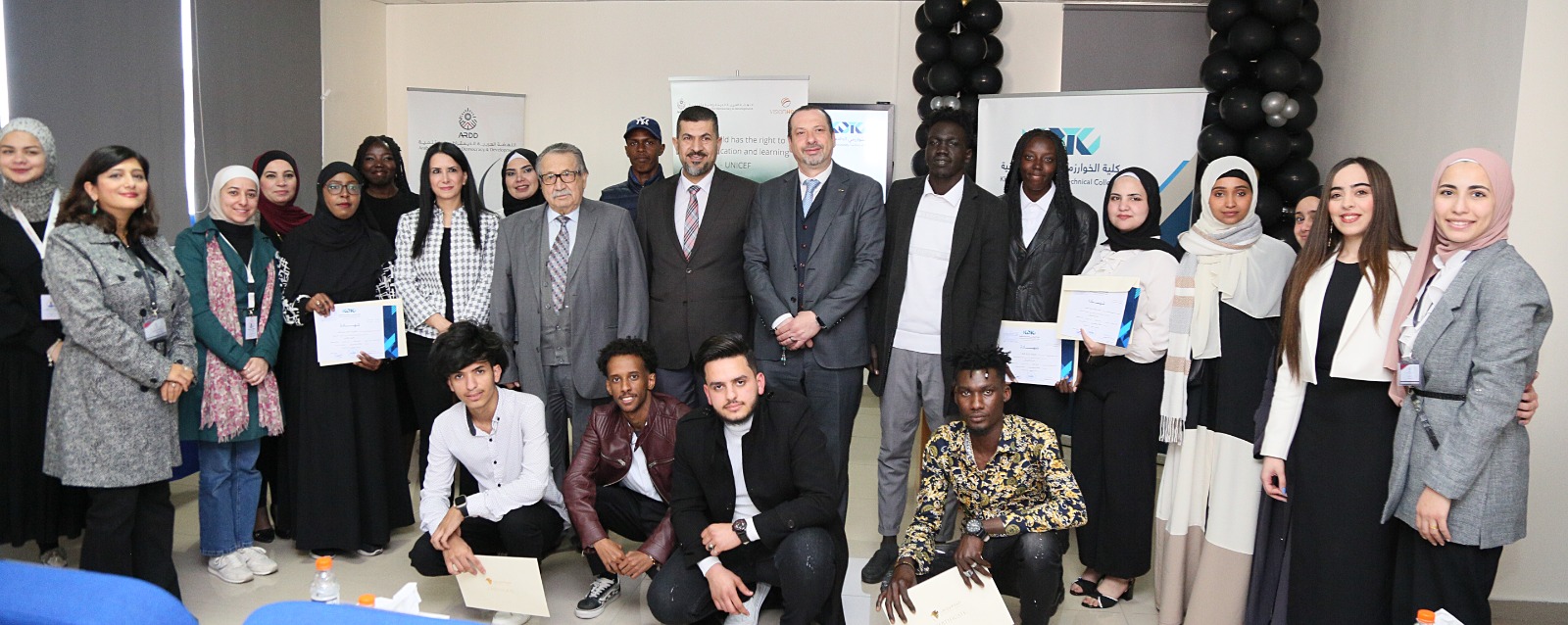Unemployment rates among Jordanian youth amount to almost 23.32 per cent, while refugees face a greater barrier to their contribution to the labor market, including more than 717,430 refugees, 3 per cent of whom are Sudanese, Somali, and Yemeni refugees, who face bigger challenges in accessing technical and vocational education and training (TVET) opportunities.
On the other hand, the importance of TVET is increasingly recognized as a pivotal tool to address unemployment and poverty, especially among refugees in the Jordanian host society, underscoring the need for concerted and integrated efforts between all sectors.
In this context, and as part of the continuous efforts by the Arab Renaissance for Democracy and Development (ARDD) for more than a decade in promoting vocational education programs, and in a special partnership with Al-Khwarizmi Technical University College, 15 young Jordanians and refugees graduated from TVET programs, after completing courses in (photography, vehicle maintenance, cosmetology, business administration, community work, and information technology), within the project “Investing in the Future: Improving the Livelihoods and Education of Minority Refugee Groups within Society in Jordan”, launched by ARDD in cooperation with Vision Hope International, and with financial support from the German Federal Ministry for Economic Cooperation and Development.
For her part, CEO of ARDD, Samar Muhareb, valued the continuation of the successful and long partnership with Al-Khwarizmi College by promoting an integrated approach between all institutions to provide solutions for these families and individuals, by following the available opportunities to enhance their access to the labor market, stressing ARDD’s commitment through its education program to ensure and protect the right to education and strive towards quality and inclusive educational frameworks that are subject to accountability and improvement, as well as providing lifelong learning opportunities for all and enabling the most vulnerable groups to exercise this right without discrimination or exclusion.
In turn, Dr. Muhammad Qaddoumi, Chairman of the Board of Directors of Al-Khwarizmi College, pointed out that the college, in response to the needs of the participants and as a form of moral support for them, provided the participants with a training course in English, in addition to efforts to qualify them to enter the labor market and introduce them to the concept of entrepreneurship and enable them to start their small projects and create job opportunities, rather than just search for them. This confirms that the college’s objectives are in line with the vision of its business development center, which aims to contribute to economic and human development in Jordan.
For her part, project coordinator at Vision Hope International, Saba Sharifi, commended ARDD and Al-Khwarizmi College for their great efforts in making this event a success, and expressed appreciation for their “readiness and cooperation in working and coordinating with the participating youth.” She also stressed the need for continued cooperation between all civil society institutions, the government, and the public and private sectors to train and qualify young people in line with the labor market, as well as the importance of integration between training and knowledge obtained by the trainee, and between the workplace in the field to be in direct contact with the market, noting that vocational training revives economic activity and improves the performance of the labor market, as sectors, establishments, and institutions tend to favor more advanced skills that serve the productive process and increase competitiveness and revenues, which creates a new dynamic in society and alleviates poverty and unemployment.
As a next step, it is important to spread the culture of Jordanian TVET on regular and continuous basis, support the work of civil society organizations to promote public perceptions in this context, improve referral systems between civil society organizations and education providers, and organize periodic media campaigns on this topic.


